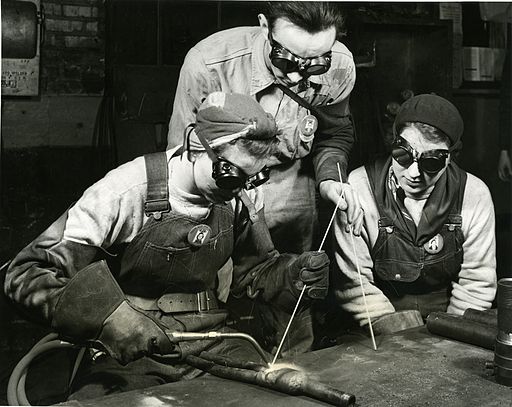
Trump & Keystone Steel
Trump’s move on Keystone XL and U.S. steel won’t work. He should look to clean energy to stimulate job growth.
![y M. Marshall (U.S. National Archives and Records Administration) [Public domain], via Wikimedia Commons](https://www.oilchange.org/wp-content/uploads/2017/01/512px-Gary_Plant_Tubular_Steel_Corporation.jpg)
M. Marshall (U.S. National Archives and Records Administration) [Public domain], via Wikimedia Commons
This requirement fits with Trump’s populist positions on U.S. manufacturing, but like many of Trump’s ideas and pronouncements, it has myriad implications that will likely cancel out whatever benefits Trump thought he might be conferring on the U.S. economy and workers.
First, let’s return to when this issue was raised during the eight-year battle to stop the Keystone XL tar sands pipeline. Back in 2011, researchers at Cornell University studying the spurious jobs claims being made about the Keystone XL project, found that while nearly half the project’s steel had already been contracted, none of the primary input materials were being made in the U.S. Nearly 80% of the steel contracted by TransCanada for the project at that point – 40% of the total needed for the pipeline – was being manufactured in Canada by a Russian-owned company. The other 20% contracted at the time was to be imported from India.
We don’t know where those contracts stand today, but at a minimum it is a clear indicator of the sources pipeline companies typically tap for such projects.
Indeed, given the ongoing pipeline boom that the oil and gas industry is determined to intensify under Trump, the requirement to use only U.S. steel could have serious implications.
Consider that the Federal Energy Regulatory Commission is currently reviewing applications for approximately 50 interstate natural gas pipelines requiring almost 4,000 miles of pipeline, all intended to be built in the next few years. That’s just the interstate dry gas pipelines – states and other federal agencies are also busy processing local projects, natural gas liquids, and other petroleum pipeline projects. What would be the impact of all of these projects being mandated to use U.S. steel?
Certainly jobs would be booming in the U.S. steel sector as manufacturing capacity is increased, but creating such a ring-fenced market would surely raise prices for U.S. steel and force other sectors to either import cheaper steel from abroad, or pay much more for U.S. steel. The ripple effects for other industries would be huge.
We certainly support U.S. manufacturing, and we believe that job creation can be stimulated through energy policy. But let’s do it the right way. Clean energy jobs are a growing source of well-paid, safe, and secure employment. If we want to stimulate job growth, let’s do the stuff that we know works and provides a safe, secure future for our kids and grandkids – a far better plan than threatening our climate, land, water, and air with pipeline projects while raising prices for manufacturers across the board.
